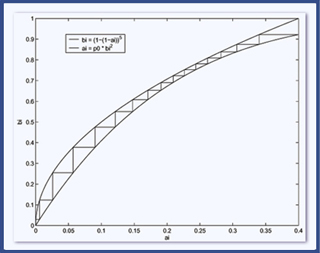Course Description
This course introduces students to iterative decoding algorithms and the codes to which they are applied, including Turbo Codes, Low-Density Parity-Check Codes, and Serially-Concatenated Codes. The course will begin with an introduction to the fundamental problems of Coding Theory and their mathematical formulations. …
This course introduces students to iterative decoding algorithms and the codes to which they are applied, including Turbo Codes, Low-Density Parity-Check Codes, and Serially-Concatenated Codes. The course will begin with an introduction to the fundamental problems of Coding Theory and their mathematical formulations. This will be followed by a study of Belief Propagation–the probabilistic heuristic which underlies iterative decoding algorithms. Belief Propagation will then be applied to the decoding of Turbo, LDPC, and Serially-Concatenated codes. The technical portion of the course will conclude with a study of tools for explaining and predicting the behavior of iterative decoding algorithms, including EXIT charts and Density Evolution.
Course Info
Instructor
Departments
Learning Resource Types
notes
Lecture Notes
group_work
Projects

Graph of density evolution of LDPC code on BEC. (Image courtesy of Prof. Daniel Spielman.)










